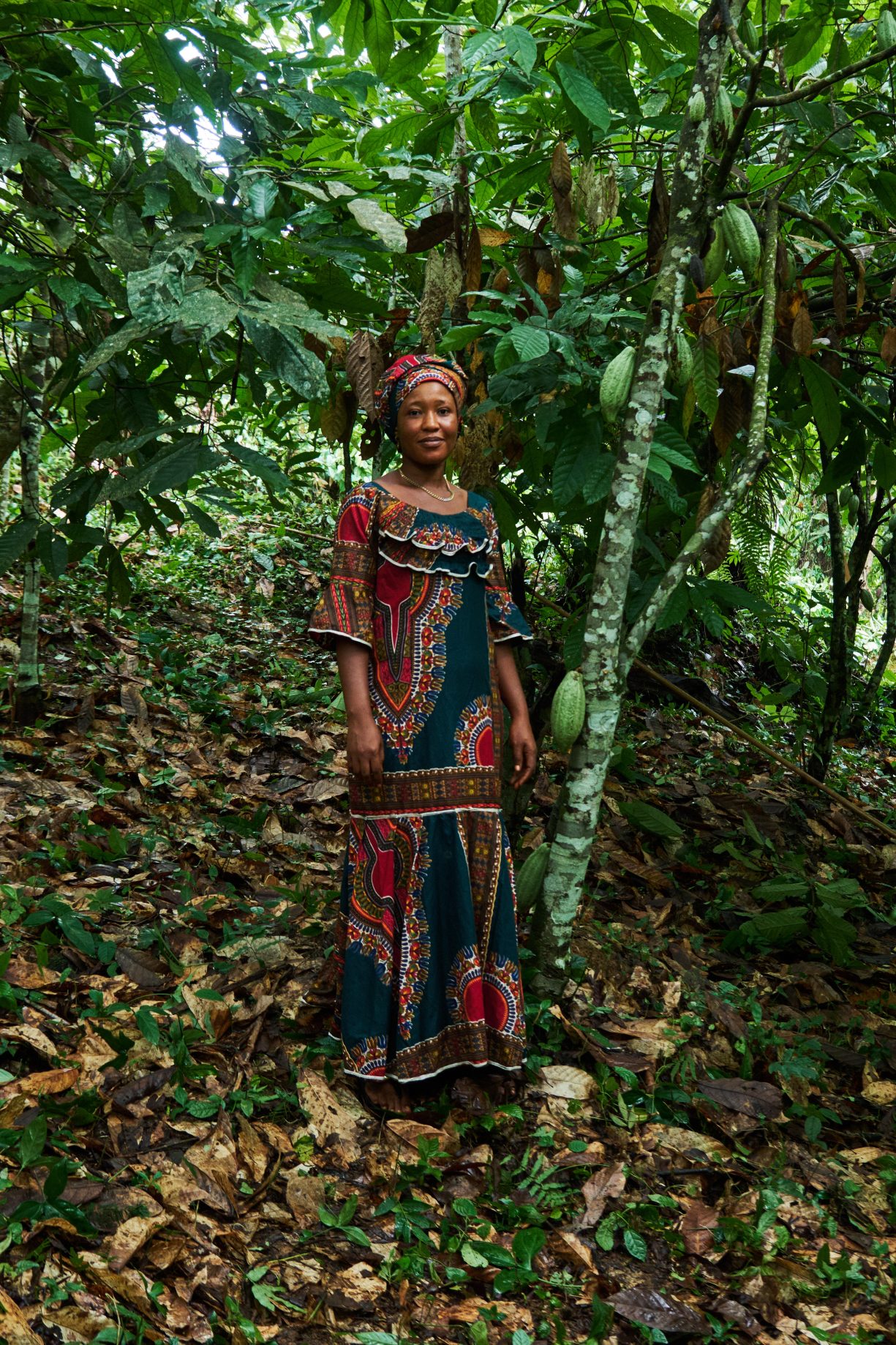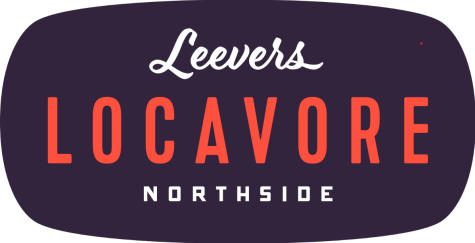Salamatu Katta
Salamatu Katta is a 29-year old Sierra Leonean cocoa farmer who’s farming like the future depends on it–because it does. The future of cocoa is no sure thing. There’s climate change to contend with, of course. And there’s also the fact that fewer young people are following their parents’ footsteps into agriculture. Yet Salamatu has chosen cocoa. As a Fairtrade farmer, she is a small-business owner who is creating a ripple effect of sustainability in her community.

Organic cultivation represents a commitment to the long-term integrity of the land, the soil and the farmers whose knowledge and care make cocoa possible. Salamatu says, “I have observed that my yields are increasing due to the organic practices ensuring that we completely do not use chemical inputs. As farmers we don’t want to destroy the environment and create more health issues for ourselves.”
For all of the benefits that organic cultivation brings, it’s worth noting that it also requires a lot of foresight and labor on the part of farmers. For example, because they can’t rely on fast-acting chemicals after a pathogen outbreak occurs, they must proactively focus their energy on agricultural practices that reduce the likelihood of disease in the first place. In the case of cocoa, fungal diseases are a primary concern. That’s why underbrushing–trimming and weeding plants that grow around and under cacao trees–is critical. It promotes air circulation and discourages fungal disease from taking hold.
Salamtu has created economic opportunity for members of her community by hiring them to undertake the underbrushing work on her farm. A quick aside on the economics of farming–farmers must pay for input costs long before they can harvest (and sell!) their crops. This means they rely on loans. But agriculture is risky, and loans (at least, loans without exorbitant interest rates) are not easy to come by–especially for women who farm. As a Fairtrade farmer, however, Salamatu has access to the benefits of the Fairtrade Premium, and her cooperative has opted to use it to cover the cost of underbrushing.
“The biggest threat to cocoa farming and our community is the diamond mining that has led to flooding. […] I’m very happy because agriculture, especially cocoa, thrives very well and is a major economic activity of our people. In our opinion cocoa farming is more sustainable than mining, and it supports the environment and biodiversity.”
-Salamatu Katta
Salamatu is meticulous in her commitment to cultivating quality cocoa. A big part of that means regulating moisture levels so that cocoa beans can dry before they are processed–and climate change is making this harder. For example, this past July, Salamatu’s village of Foindu Mameima experienced unprecedented levels of rain. This made it quite challenging for the drying pods to reach the 7% moisture level that Salamatu seeks. But Salamatu isn’t resting on her laurels. She has ideas about how her community could invest future Fairtrade Premium funds: “I would be happy to see additional stores being constructed for the cocoa farmers, construction of solar drying booths, provision of tarpaulins and moisture meters to improve more on the quality check parameters of the dried cocoa beans.”
Salamatu’s prowess for seeing opportunity doesn’t stop within established processes of cocoa cultivation. She shares, “My dream is to become a cocoa farmer entrepreneur creating jobs for our youth for the future of our community.” And she has an idea ready to go: “Essentially, I would like to use the empty cocoa pods which normally go into waste to process into black soap which can be medicinal and good for ensuring healthy skin. This value addition can create a lot of jobs for women and youths. We will be able to sell the black soap to the cities, and this will bring additional income for the women and youth in our communities. Hopefully, we will help to provide this skill training to other communities to have a multiplier effect.”
Salamatu is a champion for social, economic and environmental sustainability. That’s why we decided to partner with artist Chelsea Lewinski to craft a mural of Salamatu at Leevers Locavore in Denver, CO where you can pick up chocolate from Hu Kitchen–a Fairtrade brand that sources cocoa from Munafa.
Photo credit to: Alvaro Saucedo
Chelsea Lewinski
Chelsea Lewinski is a Denver-bred, internationally recognized street artist, celebrated for her emotionally infused portraits that seamlessly blend surrealism and abstract styles. With a mastery of layered painting techniques, Chels creates pieces that capture the complexity of the human experience and offer a vision of strength and hope in the face of adversity.
Through her work, Chelsea has become one of the most respected names in street art and Denver culture, with a portfolio that ranges from intimate canvases to sprawling, large-scale walls. Her art has been showcased around the world, and she is a sought-after collaborator for major brands and festivals.
Despite her success, Chelsea remains grounded and committed to her community. As a single mother, she juggles the demands of her artistic practice with the responsibilities of parenthood, finding inspiration and balance in the creative process. For Chelsea, each layer of paint is a step towards healing and growth, a testament to the resilience of the human spirit.

Founded with a mission to unite simple ingredients and unbeatable taste, Hu prioritizes not only those enjoying their products but also better supporting the livelihoods of the farmers that grow the ingredients they source to make their products. As a proud partner of Fairtrade, Hu sources 100% of its cocoa, coconut sugar, cashews, vanilla, and quinoa on Fairtrade terms.
Hu is a values-driven organization and by adhering to Fairtrade standards, Hu invests in a system that aims to center farmers’ voices and pay Fairtrade Premiums to support the long-term sustainability of the farmers who harvest the high-quality ingredients found in their products.
Through this partnership, Hu continues to deliver indulgent, simple ingredient chocolate and support a more secure livelihood for the people and communities behind their ingredients.
Leevers Locavore

Photo credit to Alvaro Saucedo.


